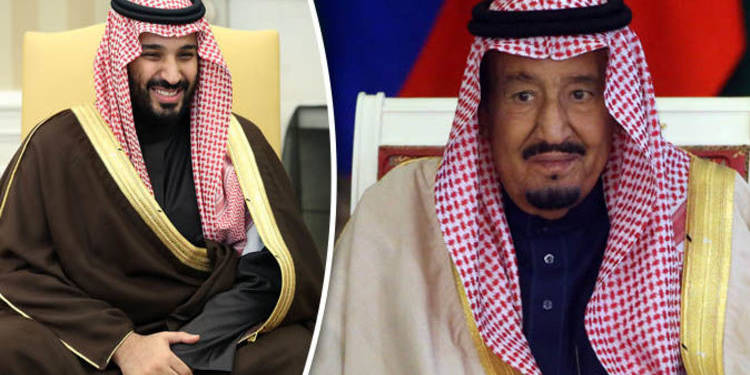The ‘Abraham Accords’ as they are being called are proving to be a highly successful peace endeavour on the part of the US for the middle east and Gulf region, as President Donald Trump continues on the path of facilitating peace between one Arab country after another with Israel. The signing of peace deals by UAE, and Saudi Arabia’s vassal state – Bahrain with Israel have shown that the region, with the go-ahead from Saudi Arabia, is moving at an unprecedented pace towards ending hostilities with what was earlier an eyesore for the Arabs – the Jewish state of Israel.
However, who is it, from within Saudi Arabia, who is calling the shots with regards to the Arab countries and what foreign policy they should adopt when it comes to Israel? The 34-year old Saudi Crown Prince, Mohamad Bin Salman lies at the centre of the pathbreaking deals, as he himself is said to be in wholehearted support of even his own kingdom normalising ties with Israel. This sentiment of acceptance towards what was historically seen as an arch-nemesis of the Arabs – Israel, comes at the cost of the crown prince infuriating his father, the King of Saudi Arabia.
This is to say that a family feud has broken out in Saudi Arabia, and that the Islamic hegemon of the world is staring at two roads heron, the choice of choosing one of which must be made soon by crown prince Mohamad Bin Salman, also referred to as MBS. Will he go on liberalising Saudi society and economy, or will the older guard, subservient and loyal to MBS’ father, King Salman, prevail? MBS can either make or break the future of Saudi Arabia.
This is not to say that MBS is a distinctive angel. His allegedly direct involvement in the gruesome killing of journalist Jamal Khashoggi and the subsequent coverup has shown that he is a despot. Many are afraid to speak against the crown prince, further stamping authority on him being an Arab ruler in the truest sense of the word. However, social liberalisation the man has effectuated in Saudi society no less, making him a tremendously popular leader among the kingdom’s youth. Lifting the ban on women driving, giving women some voting rights, apart from allowing previously unheard-of freedoms like cinemas, mixed-sex concerts and car rallies, the crown prince has signalled that under his upcoming rule, drastic changes in all areas can be expected.
The traditionalist Saudi approach has been that of governing society by the decree of Islamic Wahabism, and keeping the kingdom insulated. The oil boom came as a blessing for the medieval kingdom only recently, and in exploring that boom too, Saudi Arabia has been a traditionalist country. While the old guard is in opposition to sweeping reforms, MBS is of the opinion that it is precisely the reforms which will help Saudi Arabia grow to its truest potential, while also being in sync with the times.
King Salman and his generational ideologues do not like the prospect of the Saudi economy being inevitably opened up by Mohamad Bin Salman, the current crown prince. MBS has serious plans of transforming Saudi Arabia, and making it independent of a single-sector oil economy alone. Diversification of Saudi’s economy is the top priority of the crown prince, who is putting all efforts required to witness his Vision 2030 bear fruit. The programme, which aims to wean the country off its historic dependence on both oil revenue and expatriate labour, has at its heart a massive $500bn futuristic city in the desert called NEOM.
The diversification of Saudi economy, and MBS’ Vision 2030, both will be made much easier with Israel as a friend of the kingdom, instead of a foe. Further, MBS is said to be upbeat about the prospect of Saudi Arabia gaining commercially by signing peace with Israel. Had he been the king of the Sharia kingdom, rest assured, Saudi and Israel would have normalised relations by now. Nevertheless, for Bahrain to sign the same with Israel at the end moment is an indicator that Trump’s Abraham Accords in the Gulf have the wholehearted backing of Saudi Arabia, and its next king.
A diversification of Saudi Arabia’s economy would essentially make it a bigger and mightier UAE. Tourism, IT, Infrastructure are all areas where Saudi Arabia can bet heavily upon once it really begins departing from a single-sector dependent economy. However, such a glorious future of the Islamic kingdom is contingent upon MBS prevailing over his ailing father and the old guard. If he fails to have the confidence of a load of individuals who matter in Saudi Arabia, what will resultantly be seen is the same old kingdom being dependent for its survival on oil alone, with every drastic drop in oil prices bringing the hearts of the Arabs to their mouths.

























